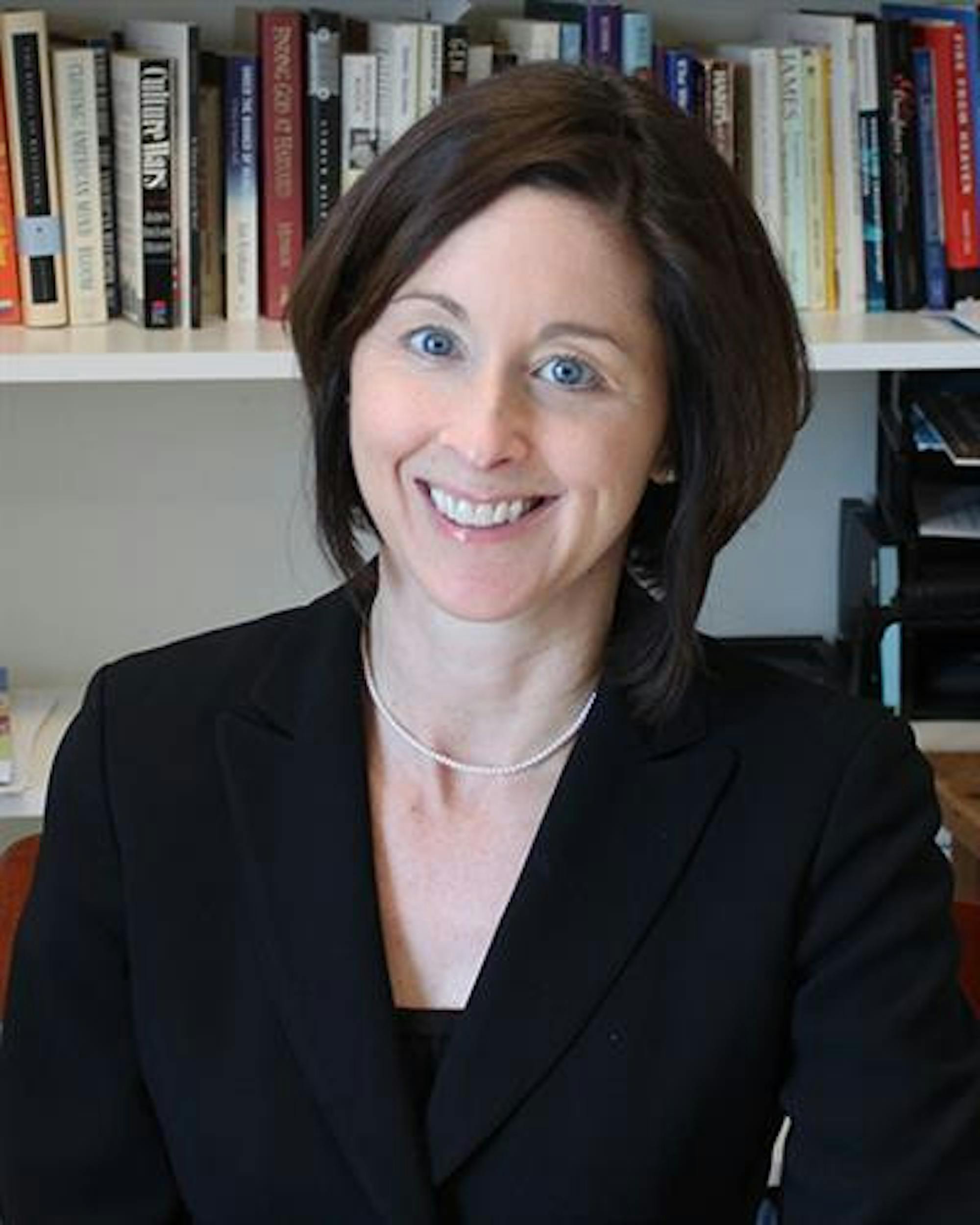Heather Curtis, the Warren S. Woodbridge Professor in Comparative Religions, has been named the newest director of the Center for the Humanities at Tufts. Curtis will be the fourth director since the center’s founding in 2008.
Since its creation, CHAT has worked to be a home for the humanities at Tufts by hosting humanities-focused events for students and faculty. In the past, these events have included seminars, speakers and workshops.
Curtis is no stranger to the center’s work, saying that CHAT has been part of her Tufts experience from the start.
“I started [at Tufts] in 2007, … and CHAT was actually founded in 2008,” Curtis told the Daily. “So, I’m not sure if it was in the spring of my first year at Tufts or the fall of my second year, but I’ve been sort of in and around CHAT since I really first arrived.”
The news of Curtis’ appointment comes as Kamran Rastegar, professor of Arabic and comparative literature in the Department of International Literary and Cultural Studies, decided to step down from the position after serving in the role for four years.
“I felt the time was right for me to reengage with my own research more substantively and to allow the Center to take on new direction,” Rastegar wrote in an email to the Daily.
In the past, much of CHAT’s focus has been placed on supporting faculty and scholars with grants, workshops and fellowships. Curtis emphasized the importance of maintaining these programs and is excited to help them thrive.
Curtis also stated that she has many ideas about new directions for CHAT, noting that she is eager to expand CHAT’s resources to reach other members of the Tufts community, with particular interest in targeting undergraduates.
“Undergrads are always invited to attend faculty lectures, and usually we’ll get a couple students to come to things like book launches,” she said. “But I’m exploring ways that CHAT could support undergraduate research more. … Are there ways that undergrads who would like to have a space, to come and share either amongst each other or around a particular theme? That is a growing edge for CHAT, [being] accessible and welcoming to Tufts students as well as Tufts faculty.”
Curtis’ goal of increasing the center’s undergraduate presence pairs well with the expansion of various CHAT initiatives, including its growing catalog of fellows and scholars.
“We are welcoming 16 fellows and affiliates this year to the Center, and this is the largest cohort that we have had during my time at CHAT,” CHAT Program Administrator Courtney McDermott wrote in an email to the Daily. “I am excited about the research and backgrounds of all of our fellows and the vibrancy that they will bring to the Center, especially since we are returning to on-campus events and programming.”
McDermott says she looks forward to working with Curtis and considers her an “organized, thoughtful leader.”
“In Spring 2022, I was temporarily assisting the [race, colonialism and diaspora] department and I got to know Heather in her previous role as interim co-chair of RCD,” McDermott wrote. “I am excited about her vision for CHAT and her desire to hear from faculty across all departments.”
Rastegar also expressed his excitement.
“I’m absolutely delighted by the appointment of Prof. Curtis, who is a friend and someone with whom [I’ve] had the honor to collaborate for some time as one of the founding faculty of the RCD,” he wrote. “Her temperament, intellect and her close links to a wide range of faculty across the humanities all will be great benefits to the work she does as CHAT director.”
Curtis is already considering some of those connections for future CHAT events and collaborations. She hopes for the center to further work with groups such as the Center for the Study of Race and Democracy and the Tufts University Prison Initiative.
While these plans are still in the early stage, the upcoming semester will still be a busy one, as CHAT’s website boasts a calendar full of upcoming fall events. The subject matter is diverse, and Curtis guarantees that there will always be good snacks.
With years of experience planning and executing events for the center, Rastegar advises that the best learning often comes from listening.
“I found that the CHAT director is most effective when one prepares just enough to set the stage and then stands back and lets each participant in an event or project do what they do best, listening and reacting, contributing and then sitting back—like a free and improvisatory musical setting,” he wrote. “Often the most magical experiences at CHAT arise from things that are unexpected and which could never have been anticipated or planned for. The director’s role, then, is largely simply to create the conditions for these moments to happen.”
The willingness to listen is a sentiment strongly shared by Curtis, and is complimented by her all-important willingness to dream.
“I am spending my first year in sort of a listening mode,” Curtis said. “I really want to welcome input from students, grad students, faculty — anyone at Tufts who has ideas about CHAT. … I hope students and colleagues will take the opportunity to come to our events and reach out to me if you have ideas about ways that CHAT can be more visible and more resourceful for our community. I'd love to hear it.”






